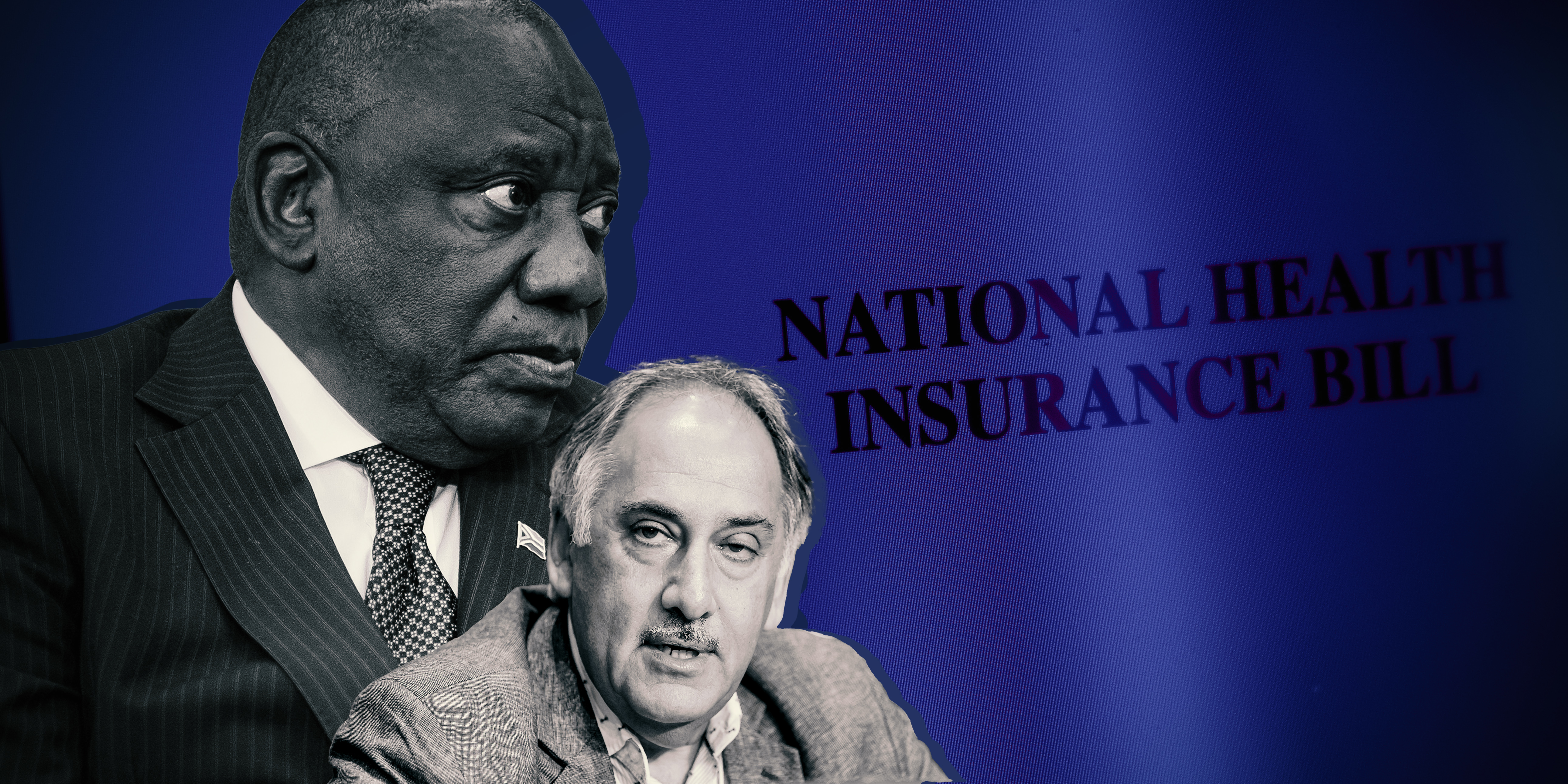The meeting on Tuesday between President Cyril Ramaphosa and SA’s prominent business leaders about the contentious National Health Insurance (NHI) Act has yielded one outcome: a commitment to more discussions to resolve differences of opinion.
Arguably, this is the merry-go-round that business leaders are finding themselves in since the government signed into law the NHI Act, just days before the general election in May.
Business leaders told Daily Maverick their meeting with Ramaphosa was “constructive”, especially the government’s “openness to engage” further on aspects of the NHI Act that had vexed them.
Business Unity SA (Busa) CEO Cas Coovadia, who attended the meeting, said the government had committed to more engagements with business leaders to hear their proposals on resolving the impasse over the Act.
“We have indicated that we want to engage on sections of the NHI Act that we are not happy with. The President has agreed to engage further, and that is constructive”, Coovadia, who leads the country’s largest business organisation, told Daily Maverick.
Martin Kingston, Business for SA (B4SA) chair, said the difference this time with NHI Act engagements was that business leaders had a direct channel of communication with Ramaphosa, Health Minister Aaron Motsoaledi and other crucial government officials.
“The President is amenable to input and our ideas. We have articulated our ideas before. The difference this time is that the President undoubtedly realises that NHI can only be implemented with the private sector and leveraging its skills, capacity and resources.
“There is a clear pathway to identify how we can constructively navigate areas that need to either be clarified or addressed. This pathway can help us to put in place an NHI Act that is fit for purpose, implementable, feasible and practical. We also need an NHI Act that secures the buy-in and the support of critical constituencies,” said Kingston.
Law amendment limitations and challenges
Ramaphosa has signed the NHI Act into law but has not promulgated it. This means that the Act is not in force — without it being promulgated in the Government Gazette, the Act has no start date.
That the Act has not been promulgated has pushed business leaders to believe that the window for changes to the Act is still open. However, in reality, a formal and long parliamentary process would have to be launched to make amendments to the Act. This is a process that business leaders cannot control despite their protestations. They have argued that, in its current form, the Act is unworkable and unaffordable for the fiscus.
The big question is: What can organised business do to twist the government’s arm on amendments to the NHI Act which still allow universal health coverage to be implemented?
Busa’s Coovadia said business leaders were not yet prepared to share their proposals publicly or “pre-empt what might come from further engagements” with Ramaphosa. “We are still working on the proposals and structure of engagements,” he said.
Organised business might find refuge in ongoing legal challenges to the Act, which could see courts ordering the government to restart the process of consultations to the Act and to make amendments to it. The NHI Act is being challenged largely on the grounds of a lack of consultation by the government before Ramaphosa signed it into law.
Read more: Avalanche of litigation likely to follow Wednesday’s signing of contentious NHI Bill
Said B4SA’s Kingston: “These court cases might push us to go back to the process of amending the NHI Act. It’s not as though the NHI Act is going to be implemented tomorrow. It’s going to be implemented over an extended period of time.”
Alternative NHI proposals
Business leaders have supported the principle of universal health coverage and equitable access to quality healthcare. As an alternative to full-scale NHI implementation, they have proposed introducing mandatory medical scheme membership for everyone in formal employment. They have also proposed establishing a fund to help people who do not belong to medical schemes but want access to private healthcare services, including GP and hospital visits.
The NHI Act envisages a unified health system in which a government-controlled fund will buy healthcare services for eligible patients that are free at the point of delivery.
The fund is set to purchase healthcare services from accredited public and private providers, and medical schemes will ultimately be restricted to offering cover only for services not provided under NHI. Business leaders have said the NHI Act will eventually oust private health insurance.
Read more: Everything you ever wanted to know about the NHI but were afraid to ask
Motsoaledi has started preparing early to launch NHI by setting up its board. Motsoaledi has also been on a roadshow across SA to promote NHI.
As an initiative of consultation and inclusion, organised business might be brought into the early process of NHI by helping to launch the government-controlled fund envisaged by the Act.
Phase one of the NHI Act suggests that Motsoaledi establish committees, including those on healthcare benefits and healthcare technology, to advise him on the implementation of NHI. Business leaders, especially those already working in private sector healthcare, can lend their expertise and resources to Motsoaledi’s committees, which could help to mend the relationship between the government and business.
After Tuesday’s meeting with business leaders, the Presidency said the government remained committed to engaging with all stakeholders “in good faith on the process of healthcare reform” and “finding workable solutions that will advance quality and affordable healthcare for all”. DM





